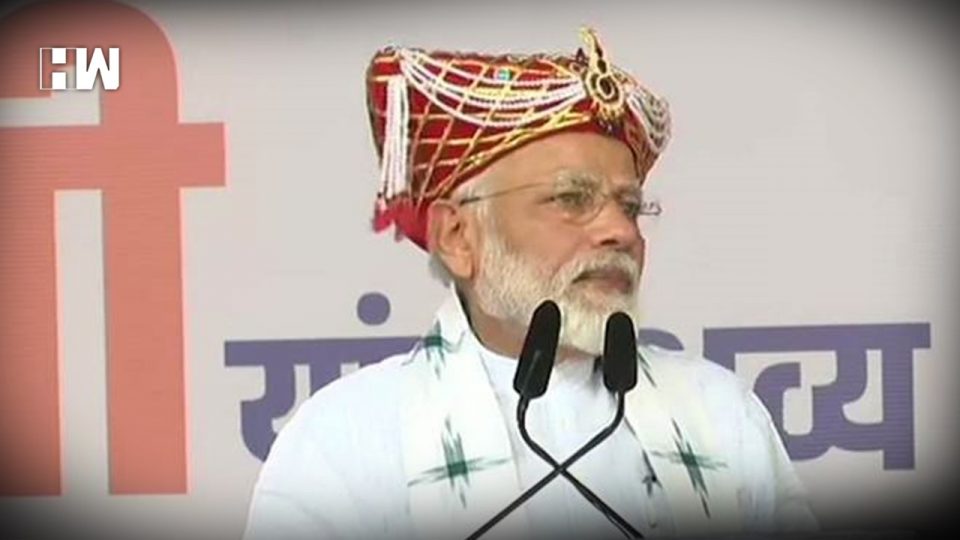The Delhi-Dausa stretch has eight entry and exit points. With a top speed of 120 kmph for all vehicles, the highway can save nearly 300 million litres of fuel and 800 million kilograms of Co2 emissions every year.
Prime Minister Narendra Modi today inaugurated the first phase of the ambitious, nearly 1,400 kilometres long Delhi-Mumbai expressway in Rajasthan’s Dausa today. The 246-kilometre Delhi-Dausa-Lalsot stretch of the expressway will cut down the travel time from Delhi to Jaipur from five hours to around three and a half hours. It is also expected to boost economic opportunities in the entire region, reported NDTV.
“Studies show investment on infrastructure brings in further investments,” the PM said, addressing a public gathering in Dausa’s Dhanawar village, in eastern Rajasthan. He pressed the button of a remote to mark the inauguration. “Sabka Saath Sabka Vikas is our mantra for the nation, we are making ‘Samarth Bharat’ while following it,” the PM further said, adding that the expressway is “a magnificent picture of developing India”.
Union Road Transport and Highways Minister Nitin Gadkari, Union MoS V K Singh, Union minister Gajendra Singh, and other leaders were present on the stage at the function.
Rajasthan Chief Minister Ashok Gehlot and his Haryana counterpart Manohar Lal khattar addressed the programme through a video link.
While Mr Gehlot joined the programme from the Chief Minister’s residence in Jaipur, Mr Khattar addressed it from a function held in Nuh district.
The first leg of India’s longest expressway opened to the public right ahead of a hectic election year. The grand expressway promises to bring down travel time from the national capital to its financial hub, Mumbai, by half, to just 12 hours.
Eight-lane-wide and nearly 1,400 kms long, it is being built at a staggering cost of over one lakh crore rupees. It is expandable to accommodate 12 lanes.
The ambitious project, which aims to connect five key states of India, from Gujarat to Maharashtra, is envisioned as an engineering marvel.
With wayside amenities ranging from charging stations for electric vehicle, helipads, trauma centres, and dedicated lanes for electric vehicles, it is also Asia’s first highway to have animal overpasses and wildlife crossings.
It also has SOS stations every two kilometres to seek assistance in case of accident or other emergencies.
The opening of the Sohna-Dausa stretch will connect Haryana’s Gurugram, Sohna, Nooh, Mewat, and Rajasthan’s Alwar, and Dausa, to the mega expressway.
The Delhi-Dausa stretch has eight entry and exit points. With a top speed of 120 kmph for all vehicles, the highway can save nearly 300 million litres of fuel and 800 million kilograms of Co2 emissions every year.
The entire highway has automatic toll booths, and the toll tax will be deducted only once — it will be calculated from the moment one enters the highway to the time they exit. The toll tax for the 220-km-long Delhi-Jaipur journey is ₹ 70 rupees, which comes to 35 paise per kilometre.
As an independent media platform, we do not take advertisements from governments and corporate houses. It is you, our readers, who have supported us on our journey to do honest and unbiased journalism. Please contribute, so that we can continue to do the same in future.

